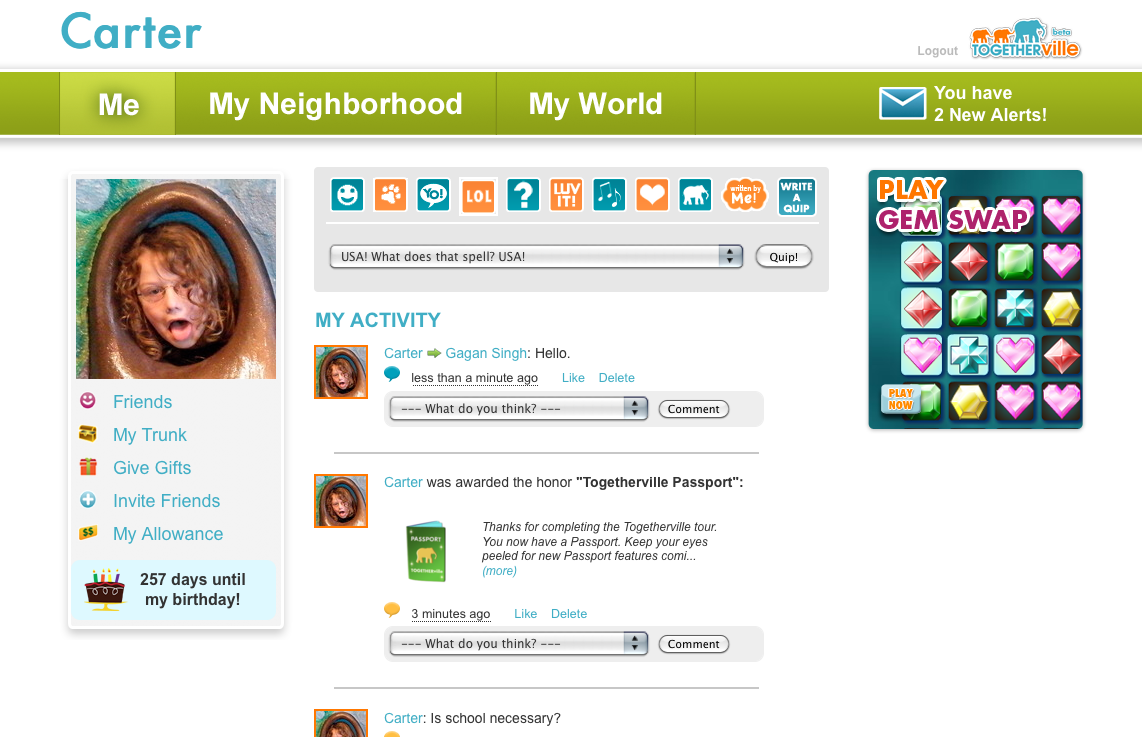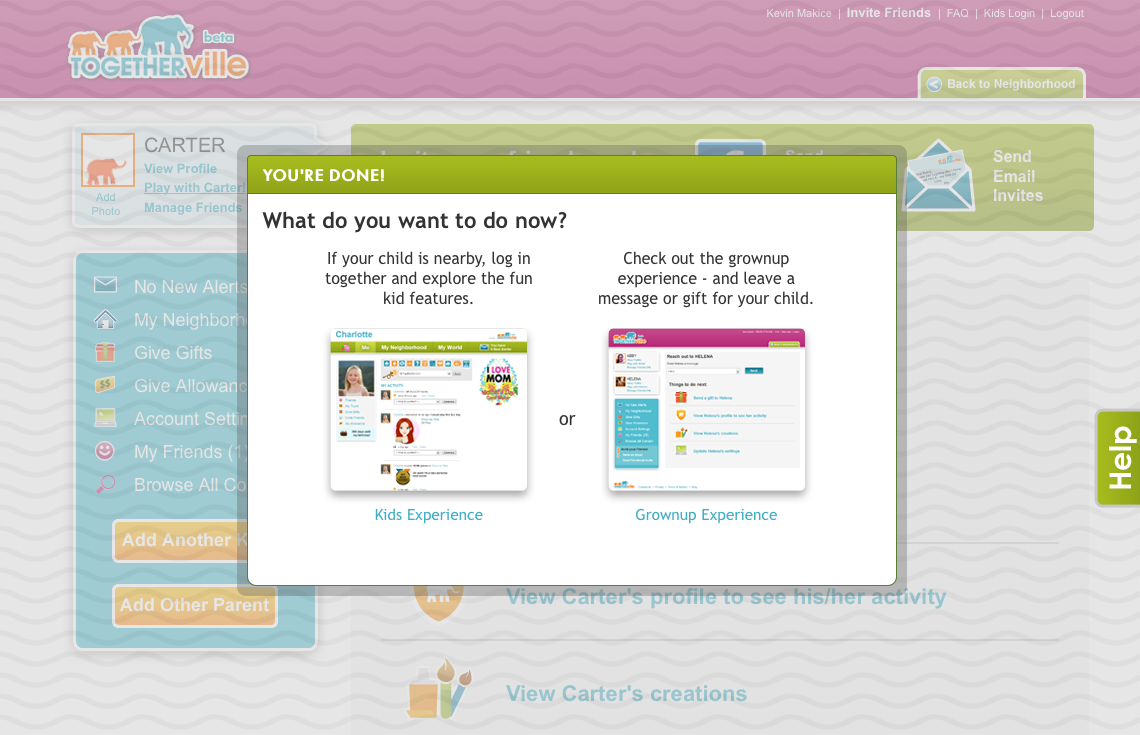One of the challenges for the newest generation is how to gain fluency in online networking without being able to draw on large, diverse social networks of their own. Today, Togetherville announced the open beta launch of a new online community for kids and their caretakers. The site brings parents into the same virtual space as their children to help them mentor kids to be good digital citizens.
“We built Togetherville using the spirit of the neighborhoods most of us remember when we were kids,” said co-founder, CEO, and parent Mandeep Singh Dhillon, “where everyone knows everyone else and watches out for each other. In Togetherville, parents have peace of mind that their kids are playing with people they know and trust and kids have fun while learning the tools they need to become good digital citizens.”
Fully compliant with the Children’s Online Privacy Protection Act (COPPA), Togetherville is intended for kids who are too young for Facebook, officially, but have parents immersed in that culture. The 6- to 10-year-olds are invited to engage with their real-world friends, play games, watch videos, and create art. Grownups act as the gateways for new contacts, assuming the responsibility for inviting other families to join each child’s online neighborhood. Experiencing online networking together, grownups can guide their kids through the age-appropriate content in an ad-free environment.
The project was developed by people trained in child development, learning, and online safety. Developers worked with officials from Connect Safely and the Family Online Safety Institute to include the social and technical activities that serve as the core competency for online interaction. Three key areas—self-expression, entertainment, and education—are emphasized. “Togetherville is social-networking training wheels for families,” said Anne Collier, co-director of Connect Safely. “It models safe social-Web use for kids and shows even parents who are already keen Facebook users how social networking works best in the family context.”
One aspect of the site that is still pending is an Allowance, a feature expected later this summer. Grownups feed an account for their children, and the kids draw from those funds to purchase virtual goods, games, and gifts. There are learning opportunities possible in this dynamic, including understanding how to budget or cultivating a sense of philanthropy in how kids choose to use their online currency. It seems clear that the financial success of the company is tied to being able to create a strong in-world economy funded by adults but driven by kids.
Kid-Tested
My ten-year-old son gave the site a test drive after the private beta opened up to the public. He’s at the top side of target audience for Togetherville, already well familiar with Facebook, Twitter, blogging, and creating YouTube videos. His literacy with social networking sites is strong, but his strong social connections remain firmly offline.
The signup, initiated by a parent, uses Facebook authentication to verify the adult’s identity and leverage his or her existing social network. The parent then creates accounts for each kid, customized with a photo and name that reflects who they are in the real-world. To increase accountability and trust in subsequent interactions, anonymity and pseudonyms are discouraged. The accounts are verified via email to ensure that the kids are firmly tied to the grownup’s online identity.
From the moment they first sign on, kids are encouraged to get involved with activities on the site by earning stamps in their Togetherville Passport. This can be done by watching a video, creating new art, playing a game, sending a gift, or posting a “quip” (the equivalent of a Facebook status message). Additional badges are designed to recognize and reward positive behavior for certain types of activities.
My son opted to play a game to start, choosing Fission Balls from among the six initial offerings. It was a short-lived game (he fired a single shot), but he then moved on to creating a logo and giving a gift to a new friend. He rejected the featured videos—Hannah Montana, Justin Bieber, and the tempting “Fart Dance”—but watched a Toy Story trailer from YouTube just to satisfy his Passport stamp. For someone well-versed in Internet memes, the video content wasn’t that engaging. (“It feels like they are trying to get Cartoon Network or Disney to sponsor them,” says my young curmudgeon.)
One strength of the site—moderated content—is also a potential drawback. There are numerous Quips and Comments from which to choose, but they are all canned responses approved by Togetherville administrators. The few opportunities to freely create text require review and acceptance by staff before they will appear on the site. This was a turnoff for my son: “It’s like they are saying that kids don’t have the ingenuity to come up with their own posts.”
The grownup’s experience centers around managing the parameters of a child’s neighborhood. Their profile simply shows the associations to other kids, and content contributions are largely in support of kid activities within the site. The favoriting mechanism in Togetherville—a “trunk”—can serve as both a digital memory book and a monitoring tool to see what kinds of important items float to the surface. For adults, activity can be piped into their Facebook news stream to share with friends in that environment.
At its best, Togetherville has the potential to both fulfill its mission as a training ground while also increasing interaction with trusted adult mentors outside of the family. A broader support structure can help kids critique ideas and develop additional methods for information gathering. At its worst, Togetherville will suffer from over-reliance on users with access to strong extended networks, presenting too many barriers to grow online networks organically. Without a lifetime of changing jobs, schools, and hometowns, kids may see value in the site limited to what they can do online by themselves, rather than with others.



